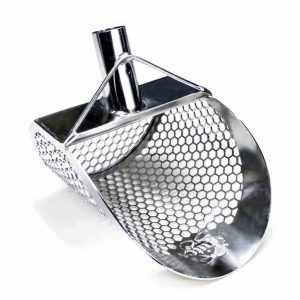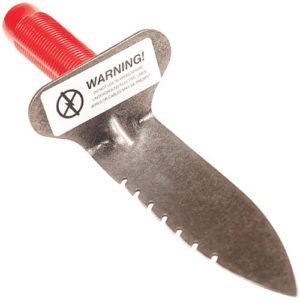If you’ve ever thought about giving metal detecting a try or you’re just starting out, you’re probably wondering what metal detecting equipment you will need. There’s so many opinions, forums and products to look at that after a bit of searching you’re head will probably start hurt. To help you out, I’ve put together a little list of basic metal detecting equipment that you will need.
We all know that metal detecting isn’t the coolest hobby ever but don’t let that stop you from giving it a try. If you’re really embarrassed you can search at night until you feel like it’s something you will keep doing. Once you make your first nice find though I bet you won’t give a turnip who sees you out detecting. Treasure hunting or metal detecting really is a lot of fun, yes there are some weirdos who detect on the beach wearing their socks that make us look bad but hey we can’t let being cool stop us from doing what we want.
I’m a surfer, far from an old history buff that people picture when thinking about a metal detectorist. I really don’t care what people think about me metal detecting, my friends think I’m cray and hey they might be right? I’m sure if you met me you would never guess I was into metal detecting, well that is until I open my mouth. There’s just something about searching for and digging up lost relics and gold that you really can’t beat. In my mind it’s one of the coolest hobbies ever. Metal detecting, or treasure hunting as I usually call it, is a bit like gold fever; once you start looking you will find it hard to stop.
Don’t get me wrong you will get frustrated in the beginning, it’s not like you pick up a metal detector and gold coins start coming up from the ground. But if you do want to give it a try I’ve got a few tips for you to help make searching for treasure more fun than frustrating. Here is a list of the metal detecting equipment you need to get started.
What metal detector is the best?
Of course you need a metal detector, but you’re probably thinking about what metal detector is best for you? Well, to make this easy I will break it down to two options; finding gold or finding jewellery (including gold jewellery), coins and relics.
Finding gold: If you want to find gold, as in gold nuggets rather than gold jewellery then it’s best to buy a gold specific detector. The reason you want a gold finding metal detector is that it will search deeper in the ground than the other types of detectors. This is pretty handy when your looking for gold as it’s so heavy that it sinks deeper into the ground over time.
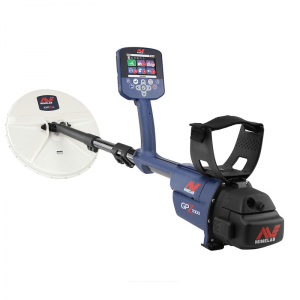
Gold finding metal detectors don’t usually have a thing called ‘discrimination’. A metal detector with discrimination allows the user to know if the metal object detected in the ground is made up or iron or not (iron isn’t good). Although not having discrimination is really annoying because you will have to dig up nails, horseshoes and any other bit of rusty metal out there, what it also means is that the detector can search deeper in the ground. So that’s why you this type of detector is best for finding gold like you would in outback Australia.
Finding jewellery (including gold jewellery),coins and relics: Relic detectors as they are called will have discrimination so that means you can tell if the metal in the ground that just set off your metal detector is “worth digging”. Most people don’t like digging up iron because it’s usually worthless junk, so if you can know this before you dig it will save a lot of time and energy. For example if you search around an old house you don’t want to be digging up rusty old nails, having discrimination will allow you to avoid things like rusty nails and focus on the good stuff like old coins and jewellery.
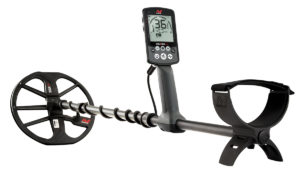
There are some other things to consider when buying a metal detector such as money. The more money will obviously get you a better detector but believe it or not some metal detectors cost up to $10,000 so set a budget before you walk into a store. For just starting out you can spend up to $1000 to get a decent metal detector, but anything less than $300 will have some compromises. Consider how much time you have to go treasure hunting to help with how much you should spend. The major bonus with metal detecting (unlike every other hobby) is that the metal detector will usually pay for itself.
You may also want to consider buying a waterproof detector for when it rains. My advice is to buy something in a beginner price range and then once you paid off your detector with what you’ve found- upgrade! The Minelab Go-Find series are a great beginner metal detector.
What is a Pin-pointer?
You will need a pin-pointer too. A pin-pointer or pro-pointer is basically a mini metal detector about the size and shape of a carrot. When you go metal detecting you will swing your detector over the ground until it beeps, when it does you obviously start to dig a hole.
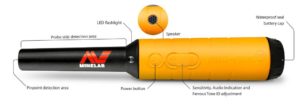
Pin-pointers are essential for metal detecting. A very handy feature to look out for is waterproofing, same as buying a metal detector. I like to go detecting when it’s raining and there’s no one around- especially on the beach, and you can only do that if you’re gear is waterproof.
Shovels and Scoops
You’re definitely going to need some kind of digging instrument and probably multiple digging tools if you want to go metal detecting. If you’re going to be using your detector on the ground then you will need a shovel and if your searching on the beach you will need a scoop.
With a shovel you will want something different to the usual garden type shovel. The idea is to dig small, specific holes in the ground that don’t leave any or much of a trace after you’ve filled it back up. People may get upset otherwise! Another thing is that you want the shovel to be smaller so it’s not so big to carry around. For this reason I recommend you buy a shovel specific to metal detecting, but you can also use it for the gardening as well 🙂
If you plan on metal detecting on the beach you will need a sand scoop.
Again, sand scoops are specifically made for metal detecting on the beach and although you could get away with a shovel, if you go anywhere near the water you will need a sand scoop otherwise your target will just keep sinking. A beach sand scoop has holes through it to let the sand and water drain out but not the coins and jewellery. You can buy a sand scoop for metal detecting online. Usually, they will send you just the scoop and then you can attach a wooden handle and away you go. Just make sure it’s light enough to carry around comfortably.
Accessories
Everything that I’ve mentioned so far is essential equipment but as with all hobbies there are thousands of accessories you can waste your money on. Don’t get me wrong, I’ve wasted plenty of money on useless things. Once bought a yabbie pump thinking it would be good to use on the wet sand to pump out coins and jewellery- it didn’t work!
There are accessories you can waste your money on and others that are more useful. Below is a list of metal detecting accessories and some points about where you might need them. You can read through to see if you want them or if they are just a waste of money in your case.
Finds pouch
Finds is the name given to everything we ‘find’ when we go out treasure hunting. Some finds are worthless junk and others can turn your life around. When you find something amazing the last thing you want to do is lose it. I’ve been out treasure hunting, found a gold ring and put it in my glove then when I finished hunting checked my glove to find my beautiful gold ring wasn’t there. The pain! It’s never a bad idea to invest in a finds pouch. You can buy a cheap bumbag to keep your finds and rubbish in which I like to use.
Swing harness
Swinging a metal detector can get pretty heavy and painful and after a couple of hours. Having a swing harness allows you to attach the metal detector to it so that all the weight is on the harness and not on your arm. This way you can detect for hours without any sore arms or joints. The harness really does help so it’s not just for the old they’re awesome.
Metal detecting knife
Sometimes it’s difficult to pry an object out of the ground so having something smaller than a shovel is needed. If I ever go treasure hunting in the dirt I always bring a metal detecting knife. They are very useful in gravel and rocky areas. It’s not needed if you only plan on treasure hunting at the beach though.
Gloves
It’s really important to get a pair a gloves. I know I’ve put this one at the bottom but it should be at the top. No matter if it’s in the water, the beach or in the park, there will alway be something sharp and nasty around to cut your hands. You just need a pair of gloves when you go metal detecting. Buy a pair at the hardware store or the metal detecting shop but make sure they are good ones though.
Hopefully now you’ll have a better idea of what metal detecting equipment you’ll need to get going, but if you have any more specific questions just let me know. If you live near a metal detecting store go talk to someone as I’m sure they will be happy to help out. Just keep in mind what you need and what can wait until later, otherwise you may walk out with more than what you planned on buying.
Another option is to hire a metal detector. This is the perfect way to try metal detecting and see if you like it or not? It would also be a great idea to take a lesson first otherwise you might get frustrated and give up before you get started. Having a lesson will give you basics of what to listen for, how to dig so that you are able to find at least a coin on your first hunt. But remember we all find lot’s of rubbish so don’t think it’s just you if you find nothing on your first few times.
As I always say “Anything could be anywhere!”. Good luck and I look forward to hearing what you find.

